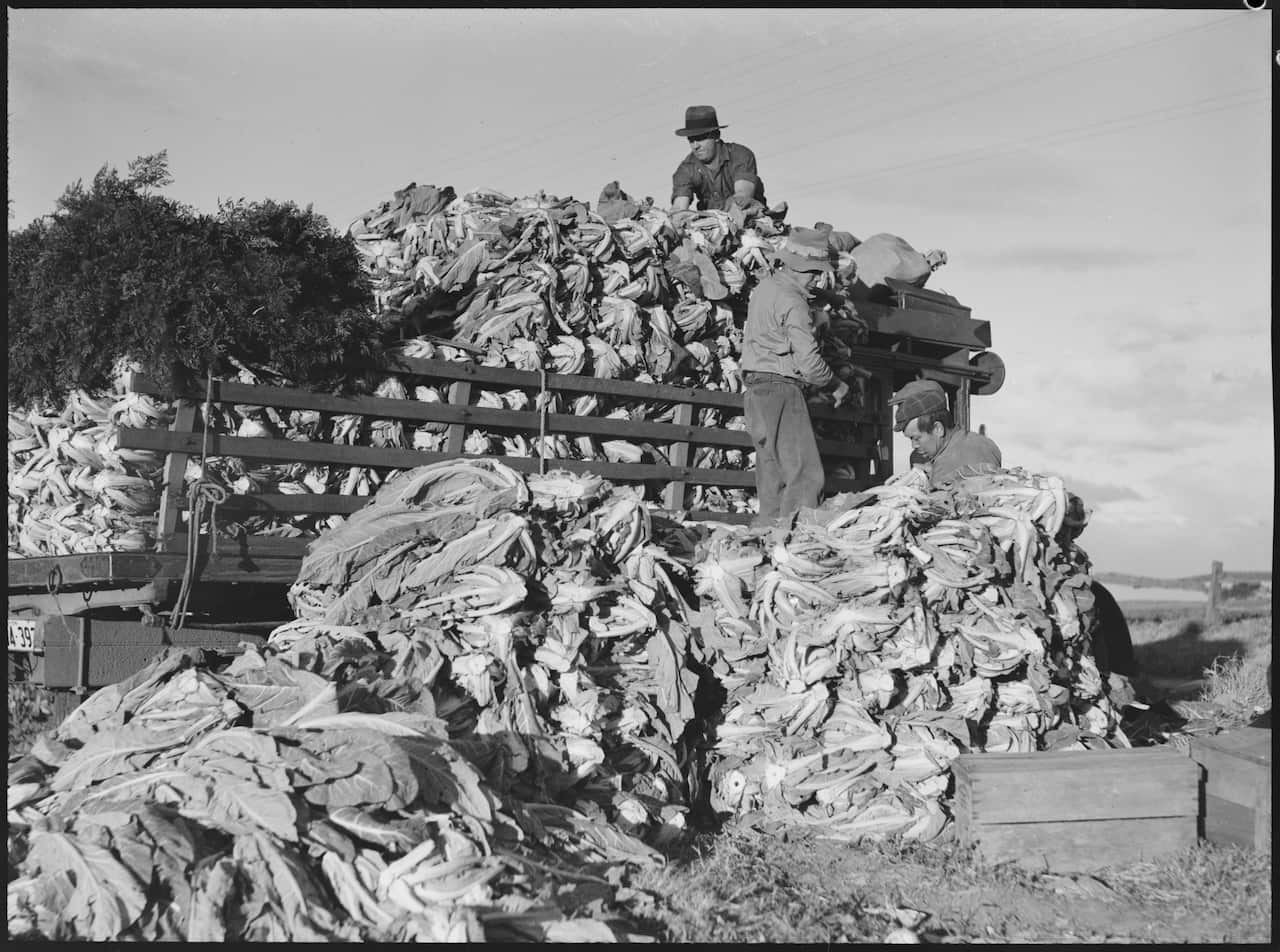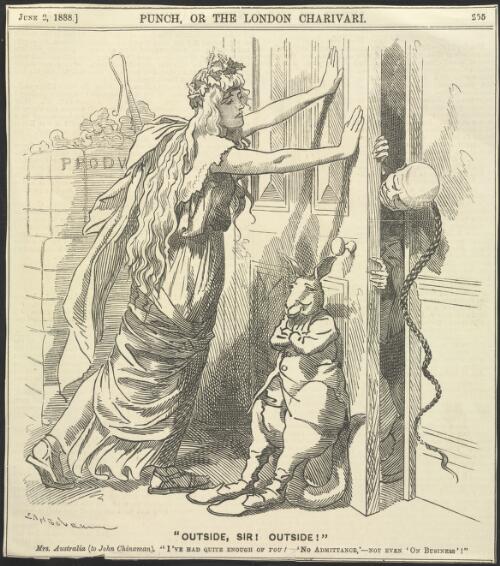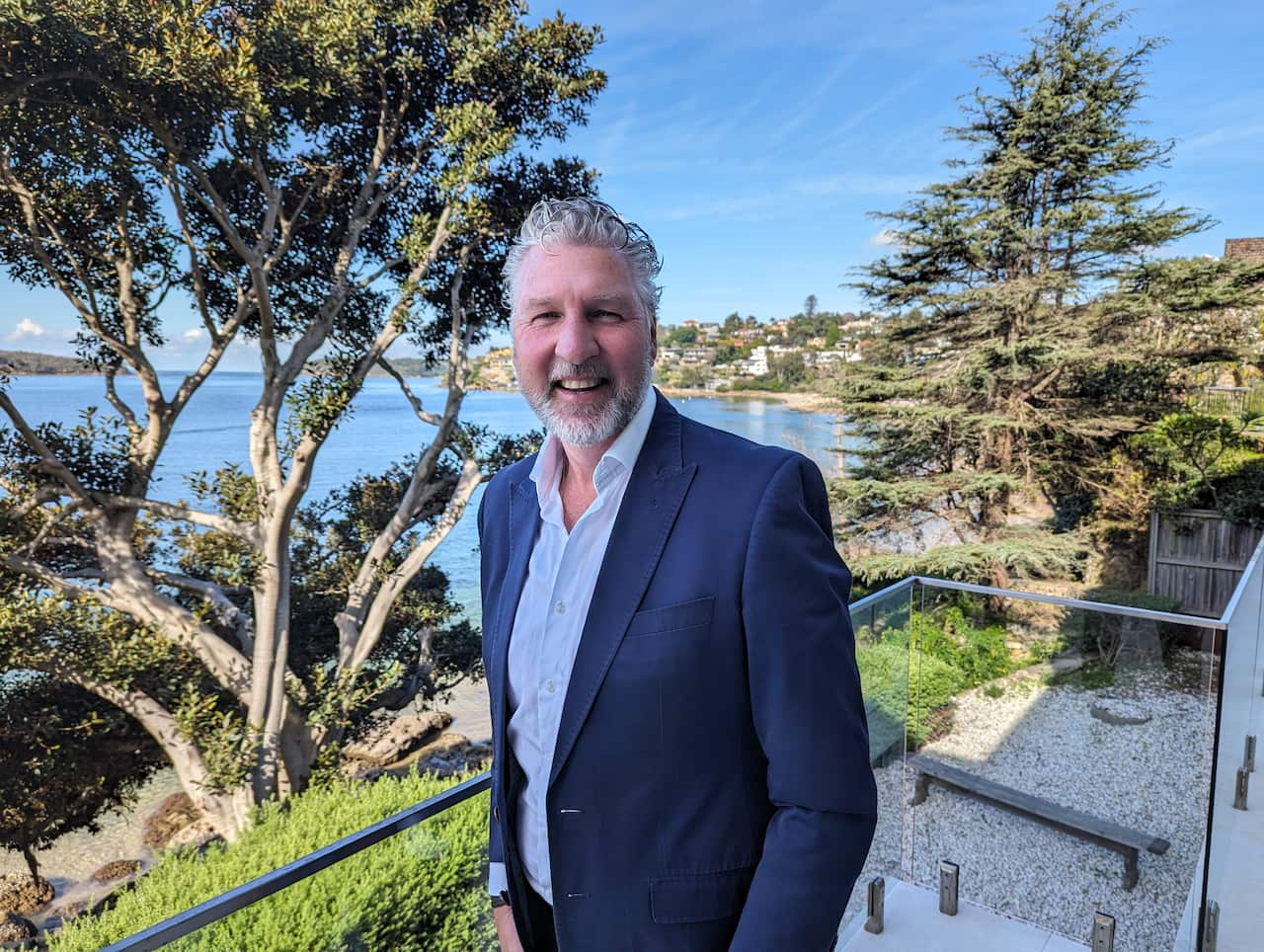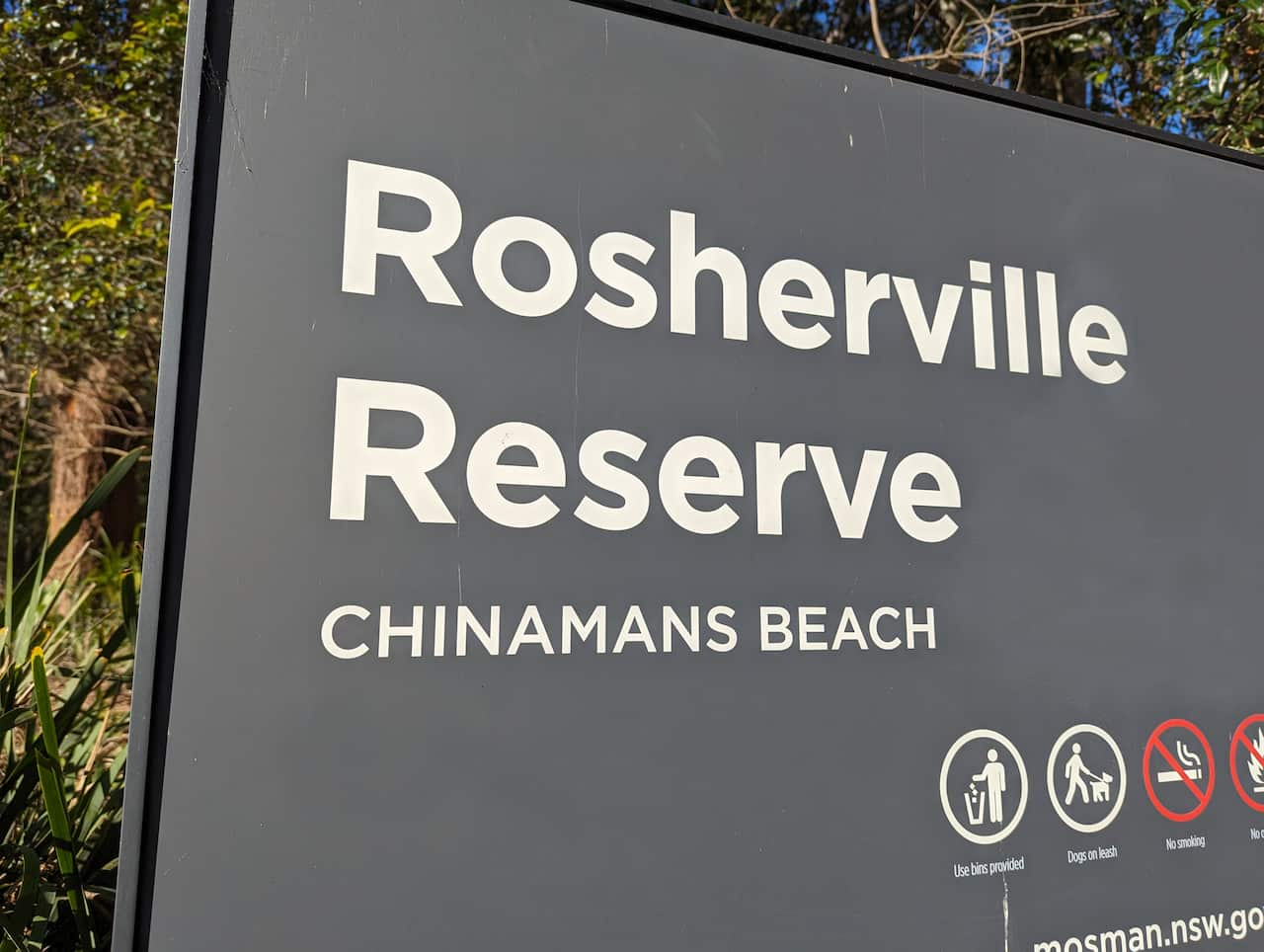Key Points
- There are 253 place names across Australia that include the terms ‘Chinaman’ or ‘Chinamen’.
- The name dates back to the 19th century and is thought to be linked to Chinese gold rush migrants as well as market gardeners and fishers.
- Some Chinese community members say the term is ‘racist’ and are calling for the re-naming of landmarks.
When second-generation Chinese Australian Osmond Chiu became aware that a popular Sydney beach bore the name Chinamans Beach, he felt “very uncomfortable”.
“‘Chinaman’ is not a respectful word, and it’s often used as a (racist) slur,” he said.
“It’s a slur against myself and my (Chinese) friends.”
However, Chiu said few agreed with this belief when he later raised the issue among people who did not have Chinese heritage.
“Some thought the word ‘Chinaman’ was simply old-fashioned but not deeply problematic, even after my explanation,” he said.
“Others did not think the original intent of naming a place ‘Chinaman’ was malicious.”
For Osmond Chiu, the term ‘Chinaman’ is a racist term stemming from the 19th century and should be changed. Credit: SBS Chinese
The term is used in place names believed to be linked to the history of early Chinese migrants, with one such location being Chinamans Beach in Mosman, Sydney.
Records from the New South Wales Geographical Names Board indicate that the beach name was associated with nearby market gardens, tended by members of the Chinese community in the 1800s.
Records show a man named Cho Hi Tick leased the land and created the market gardens with the Sydney Harbour backdrop.
The origins of ‘Chinaman’ for naming landmarks
Sophie Loy-Wilson, senior lecturer in history at the University of Sydney, has a different theory as to how Chinamans Beach got its name.
She said from the 1880s, the area was also known as Rosherville Beach to promote local land sales, until it was officially named Chinamans Beach in 1977.
She said the beach was named after the Chinese anglers who favoured nearby fishing spots.
“Before the advent of refrigeration, Chinese fishermen were very important in Australia because they understood how to cure, smoke and preserve fish,” Loy-Wilson told SBS Chinese.
“They were able to buy fish from Indigenous fishermen, for example, preserve it and sell it to Europeans. They also fished themselves.
“So, down the coastline of Australia, including in Manly, you have ‘Chinamans’ beaches (which refer to these Chinese fishermen).”
University of Sydney senior lecturer in history, Sophie Loy-Wilson, says ‘Chinaman’ place names reflect the history of anti-Chinese racism in Australia. Credit: Sophie Loy-Wilson
The Composite Gazetteer of Australia, a government database of place names, shows that there are a total of 253 place names across Australia that include the terms ‘Chinaman’ or ‘Chinamen’.
New South Wales accounts for the most, with 83 locations, followed by Victoria with 58.
These include waterways, landforms, islands, and other landmarks, though it does not account for roads, railways, or unofficial names, therefore the actual list could be longer.
Chiu, a researcher at the think tank Per Capita, said the term ‘Chinaman’ had historically been used in a negative context in Australia.
“If you go and look at old newspapers or anti-Chinese posters, they often used the word ‘Chinaman’ quite prominently to whip up fear and to sort of highlight that people of Chinese heritage were completely different and they should be excluded from our society,” he said.
Chinese market gardens in Windsor, 2 July 1938 Credit: Mitchell Library, State Library of New South Wales
Loy-Wilson said the term dated back to the British colonial period when European settlers believed in a hierarchical system.
“They believed that the race you inherited from your parents put you on a hierarchy of superiority, with Europeans at the top and other races (at) the bottom,” she said.
“For example, during the Gold Rush era (1850-1900), Europeans, instead of learning Chinese names and Cantonese phrases, would invent these kinds of capsule phrases to describe Chinese people. It’s a way of kind of taking away the individuality of Chinese people.”
On 1 June 1889, the Western Mail published the story of a Chinese immigrant named Ah Sue, who took his own life in prison after four Chinese labourers were executed.
In the related reports, including in the Western Australia Police Gazette, these five Chinese individuals were repeatedly referred to as ‘Chinaman’.
In 1888, Punch magazine published a discriminatory cartoon against Chinese immigrants, with a caption stating: “‘Outside, Sir! Outside!’ Mrs. Australia (to John Chinaman), ‘I’ve had quite enough of you! No admittance – not even on business!'”
In 1888, Punch magazine published a discriminatory cartoon against Chinese immigrants. Credit: Linley Sambourne / National Library of Australia
Loy-Wilson said place names containing ‘Chinaman’ reflected “the history of anti-Chinese racism” in Australia.
“We had quite significant migration of Chinese indentured labourers to Australia directly after European invasion to work as shepherds, for example, to work as farmers on Australia’s big pastoral runs,” she said.
“With the gold rushes, as it’s more widely known, very large numbers of Chinese migrants came to try their luck in new gold (fields).”
After the 1850s, the Chinese migrant population grew to be the second largest in Australia, after Europeans.
Property consultant Robert Klaric said that many Chinese buyers were attracted by the name ‘Chinamans Beach’. Credit: SBS Chinese
Loy-Wilson said at the time, not everybody celebrated the history of Chinese contribution to Australian society.
“(The term ‘Chinaman’) was used by British authorities and British migrants to describe Chinese people at a time when British people thought they were superior,” she said.
“The word comes from a time when that idea was widespread.”
On the other hand, in Mosman, one of the suburbs with the highest average property prices in Australia, Chinamans Beach has become a drawcard for wealthy Chinese immigrants looking to invest in property, according to Robert Klaric, a Sydney property consultant and long-time resident of the area.
Far from being off-putting, Chinese buyers were drawn to the area because of the name, he explained.
“A lot of wealthy Chinese people from mainland China love the fact that the beach is called Chinamans Beach,” Klaric said.
“They always ask why (it’s named that), and I explain to them that it was because of the market gardens for the Chinese. They had a beautiful backdrop to be able to do their work.”
Klaric said Chinese buyers found this connection appealing.
“They love the fact that it’s in a 2088 postcode, 88 is a very lucky number. They love the fact that they can buy prestige real estate and have the beach called Chinamans Beach.”
‘Far behind the wider discussion’
Chiu said other countries with a similar history of gold rush migration and anti-Chinese discrimination, including the United States, Canada, and New Zealand, also widely used the term ‘Chinaman’ in place names.
However, he said Australia was “so far behind the wider discussion”.
“Canada provides a very good precedent. There is a place in the Rocky Mountains called Ha Ling Peak, which was previously called ‘Chinaman’s Peak’. They re-named it after a Chinese individual who actually climbed the peak,” Chiu said.
Official geographical directories show that New Zealand has 13 locations with the term ‘Chinaman’ or ‘Chinamen’, the United States has 21, while Canada has only one.
In June 2023, Western Australia Labor MP Pierre Yang called for a debate on the use of the “derogatory and contemptuous” term.
There are 26 place names in Western Australia containing ‘Chinaman’.
In , Yang said the term was “used to denigrate people of Chinese cultural heritage”.
The word was racist 200 years ago; it is still racist today.
Pierre Yang, Western Australian MP
“We do have ‘Englishman’, we do have ‘Frenchman’ in the English language, but we do not have ‘Englandman’ or ‘Franceman’, but we have the word ‘Chinaman’,” Yang said.
There has been no effort to rename places in Western Australia that contain ‘Chinaman’, according to Yang and Chiu.
Chinamans Beach is located in Mosman in the expensive northern suburbs of Sydney. Credit: SBS Chinese
By contrast, Chiu said Australia had a record of changing place names considered offensive to First Nations communities.
In January 2023, a creek in Queensland originally named ‘Black Gin Creek’ was changed to ‘Watyakan Creek’.
The new name means ‘woman’s creek’ in the Iningai language and is seen as a tribute to those who historically camped near it, Chiu said.
“We know the name of the Chinese person who leased the market garden – Cho Hi Tick, so it would be far more respectful to actually name (Chinamans Beach) after that person,” Chiu said.
Loy-Wilson said that to address these place names properly, there should be collaborations with Chinese Australian historical societies, local historical societies, and local Chinese Australian migrant groups and organisations.
“We need to learn from Indigenous history and Indigenous politicians. Always the way forward with these questions of racism and its legacies is consultation,” she said.
What needs to happen with these place names is not a rejection or a forgetting of the Chinese past.
Sophie Loy-Wilson, University of Sydney
She said the experience of renaming Sydney streets could serve as a precedent.
“The City of Sydney Council did research into Alexandria, Zetland and Botany, and decided to rename some of the streets after Chinese market gardeners, so there is a street called ‘Sam Sing Street’.





